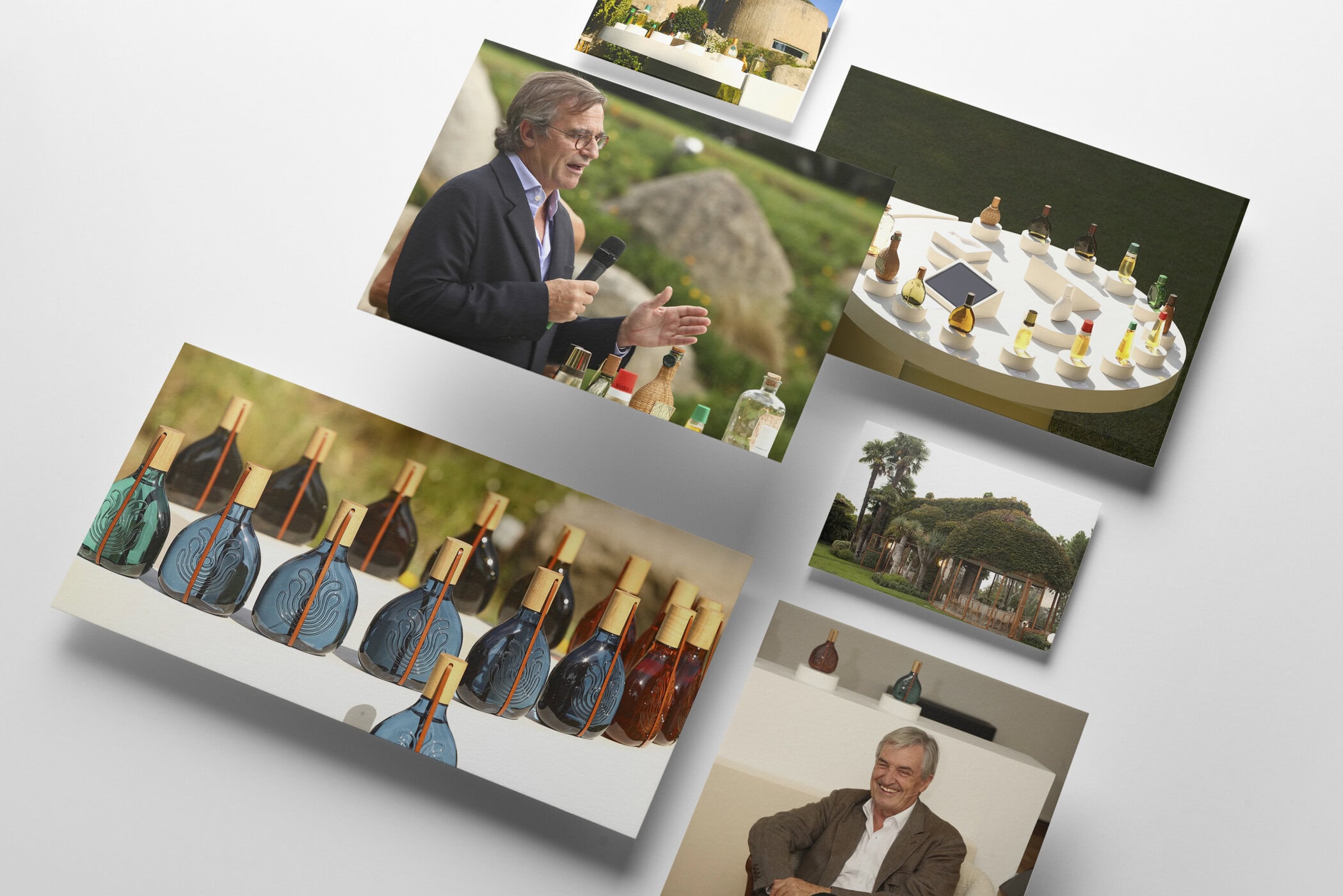In a rare conversation, Manuel Puig & Jean-Claude Ellena talk about family, fragrance, and putting Puig forward—via its roots with Colonias Absolutas, a cologne collection that speaks softly but says everything about identity, legacy, and the Mediterranean soul
By Kenneth Richard
On a quiet autumn afternoon in Barcelona—just a day after the crescendo of high drama in Paris Fashion Week—the fashion and perfume world was drawn to a different kind of moment: one of reflection. Not a spectacle, but a return—to origin, to identity, to scent. Puig, the family-owned house with a century of history behind it and a public listing still fresh on its ledger, was ready to speak in its own name.
This was the unveiling of Colonias Absolutas Puig, a new collection of four eaux de cologne that signals something deeper than a product launch. It is a manifesto in scent, rooted in memory and composed with intent.
The setting, Casa Semienterrada—designed in 1986 by Javier Barba—would later reveal itself as a fitting backdrop: a home built into the earth, bioclimatic and quietly radical. Like the fragrances unveiled that day, it was modernism in dialogue with tradition.
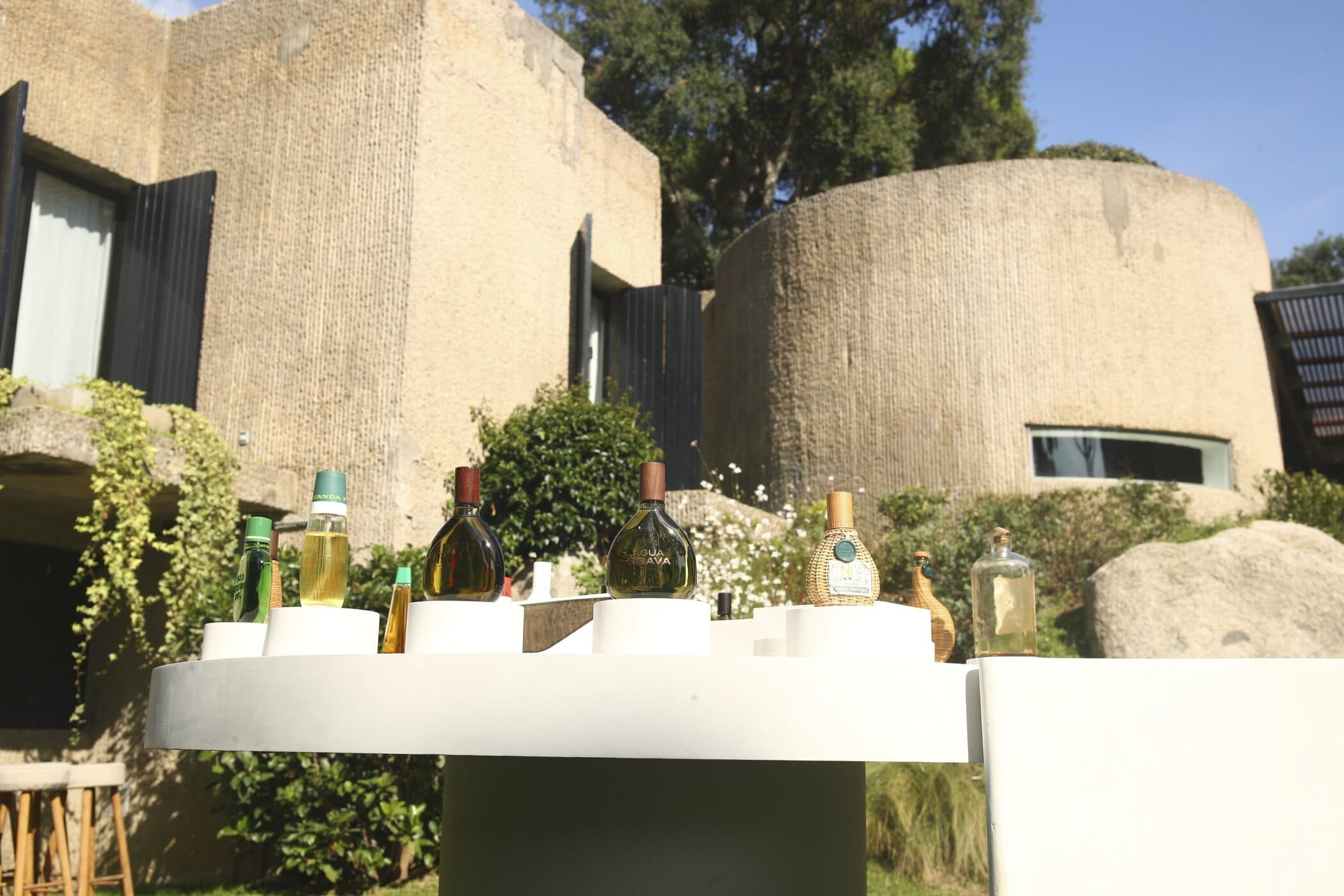
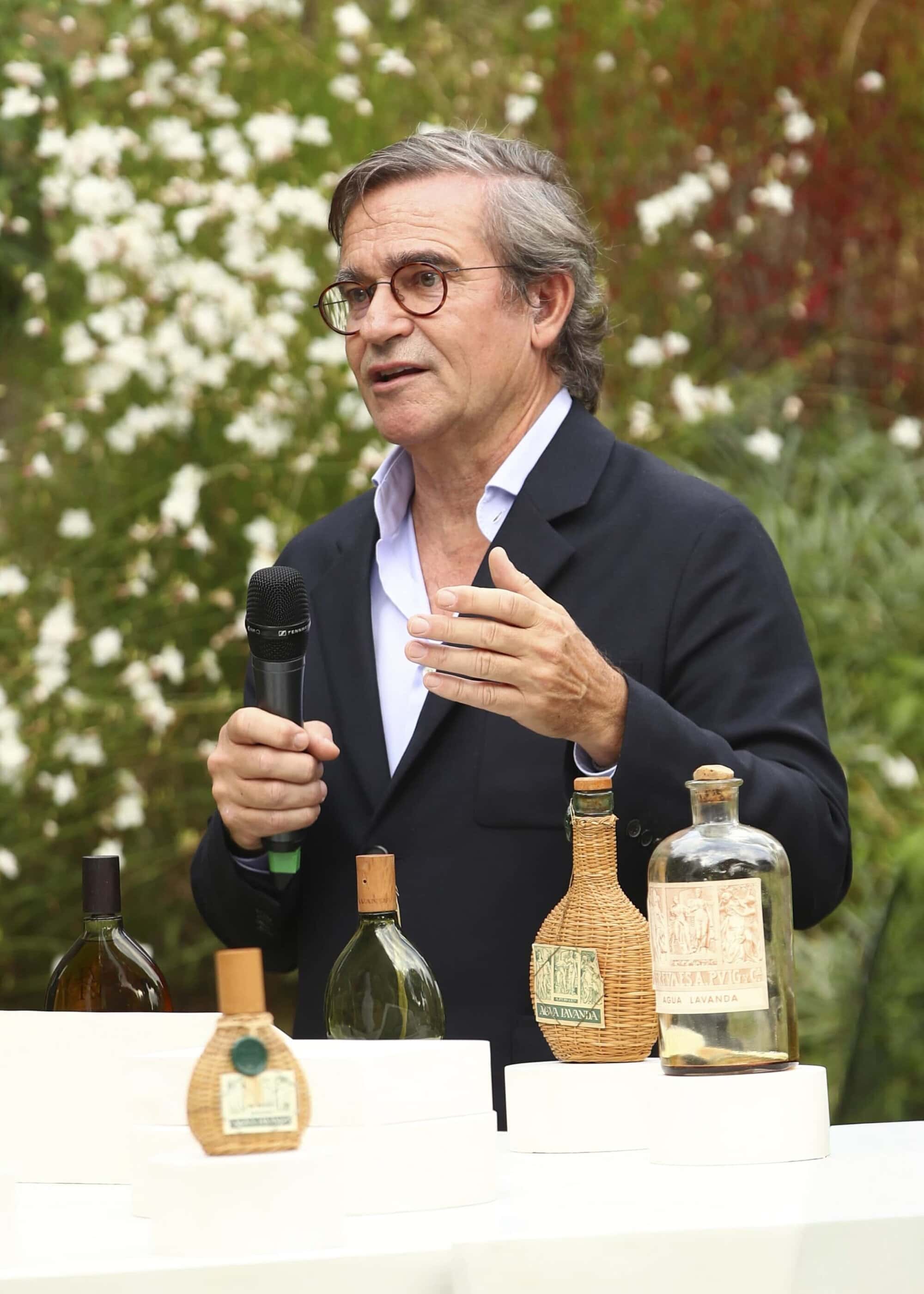
Manuel Puig, Vice Chairman and member of the founding family’s fourth generation, welcomed us with quiet presence, greeting us less like an executive and more like a curator of legacy. Reserved, precise, and almost self-effacing, he began not with a headline but a thank you: “It was a way of looking back to rescue what should not be lost. To honor our parents and grandparents and to be able to thank them for their legacy.”
This was the formal unveiling of Colonias Absolutas Puig, a new collection of four eaux de cologne that is anything but new. Three of them—Agua Brava, Agua Lavanda Iris, and Agua Noble—reinterpret foundational Puig fragrances; the fourth, Agua Mediterránea, is a wholly original creation. All four were composed by master perfumer Jean-Claude Ellena, whose presence would later shift the energy of the event from reflective to poetic.
For Puig, the project is a return not just to cologne, but to something more intimate: a reconnection with identity after decades of international expansion.
We are known for different brands from almost ten countries. We have fragrances and fashion from Paris, London, Sweden, Greece, Colombia, Brazil… But what is from us? From here?
The answer, it turns out, is cologne. Simple. Mediterranean. Essential.
A Fragrance Born of Necessity
Puig’s early scents were not born in luxury but in scarcity. As Manuel Puig recounted, the company’s founding occurred during a time when Spain was isolated politically and economically. Imports were restricted. The country was still recovering from war. Puig’s grandfather turned necessity into invention.
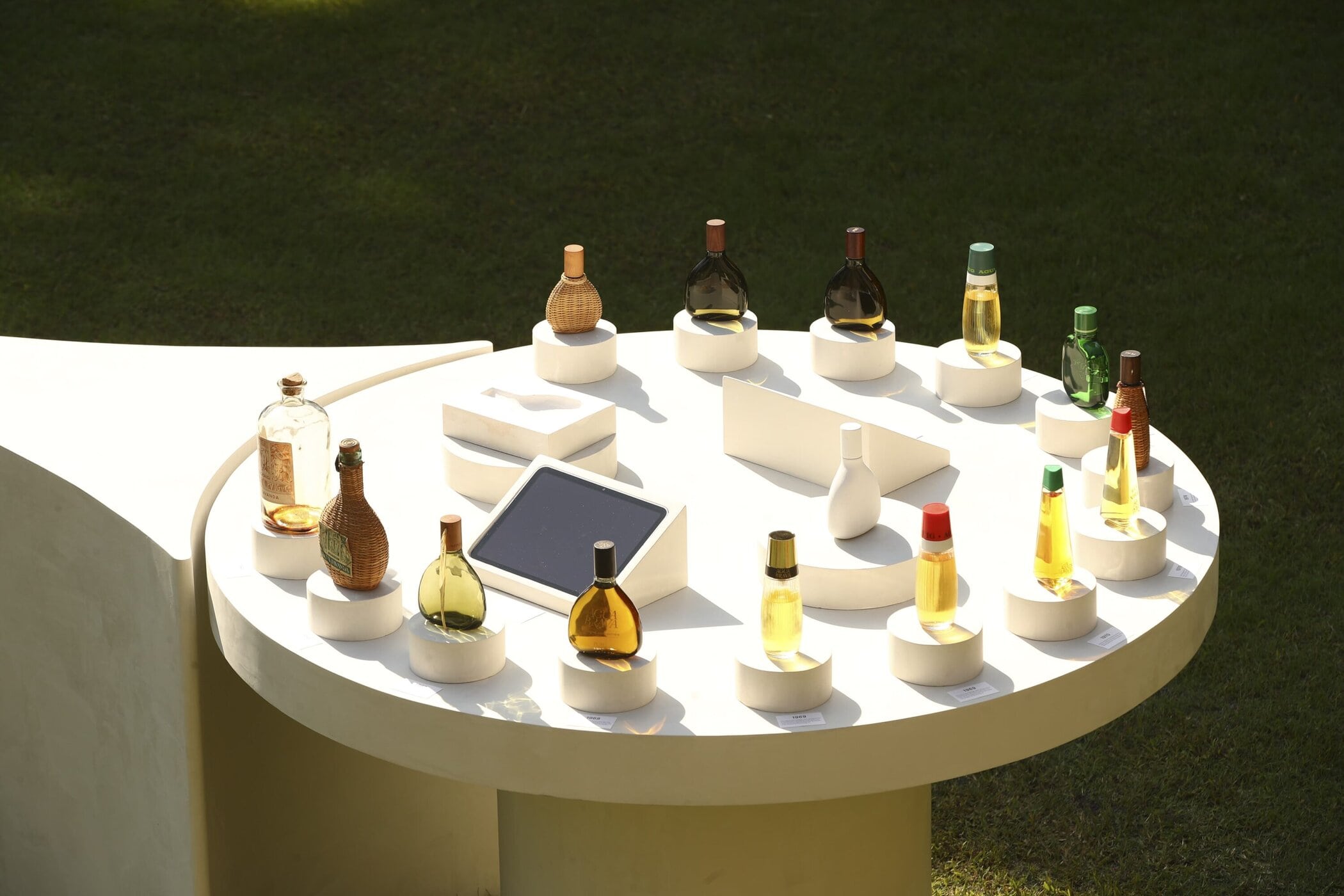
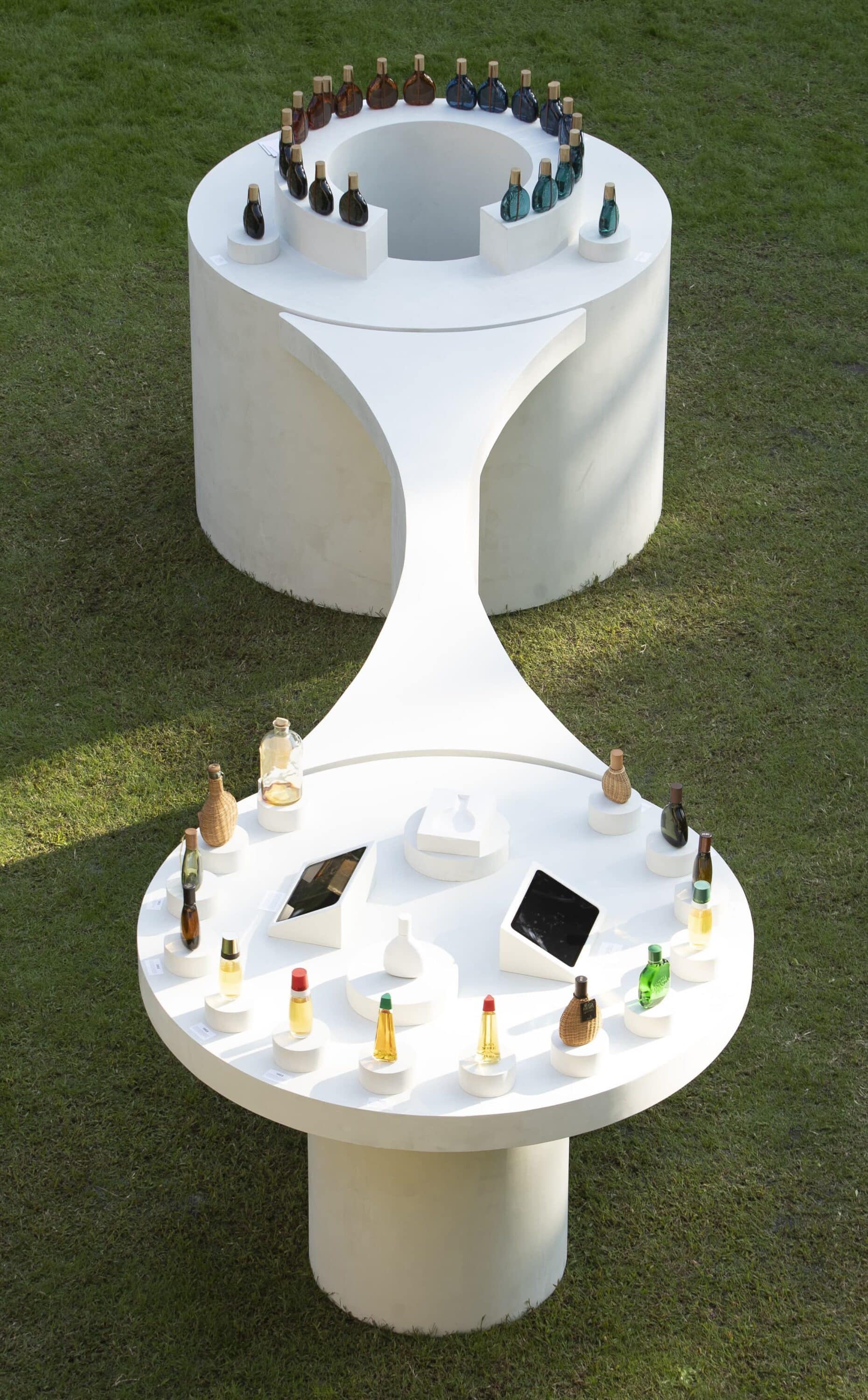
“My grandfather decided to do fragrances with their own capacity,” Puig explained. “The country was closed, so we had to do everything here: glass, plastic, packaging. This forced us to work differently. It created a school of thinking that continues today.”
That ingenuity is what gave the world Agua Lavanda in the 1940s, and Agua Brava in the late 1960s—fragrances that not only defined the Puig house but quietly revolutionized perfumery in Spain.
“We had to export to grow,” Puig said, “but Spain, at that time, wasn’t necessarily the easiest origin story for the global fragrance market. That’s why we eventually planted a foot in Paris. But our true scent was already here.”
And so, this launch is more than a product refresh. It’s a philosophical return. Colonias Absolutas reclaims Puig’s authorship in a world where its name, until recently, rarely appeared on the bottles it produced.
“We were a little shy,” Puig said. “We didn’t always want to say we were behind this or that brand. But that shyness… maybe it came from discretion. Maybe from austerity. Now, the name starts to be known.”
A House That Has Gone Public, Quietly
This growing visibility is no accident. A little over a year ago, Puig made its debut on the public stock exchange. A century-old family business stepped into the light. This week, it reports third-quarter earnings to shareholders.
But if there’s any tension between public company performance and personal legacy, Puig does not show it.
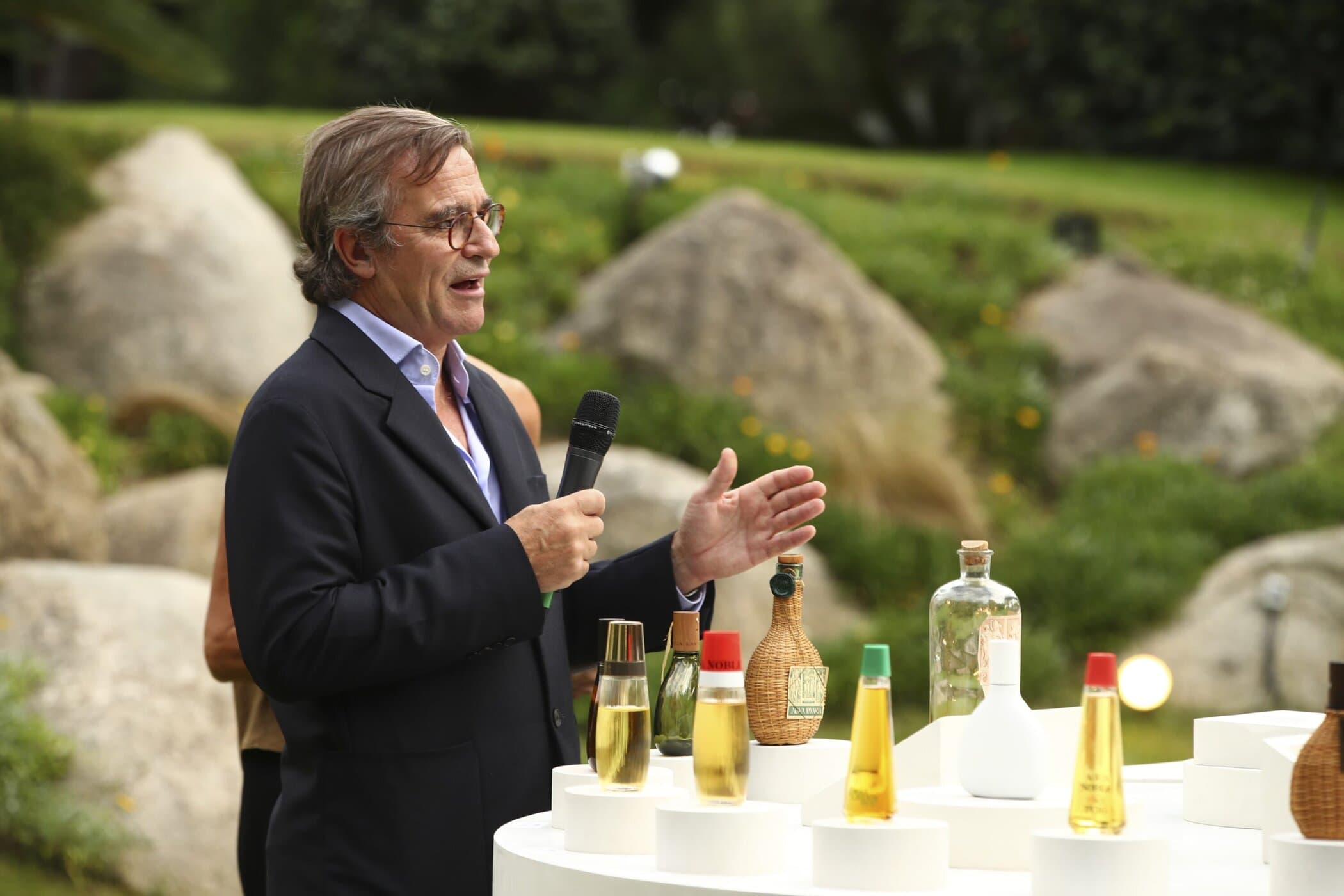
I think it’s good for the next generation,” he said of going public. “Even if I don’t like being in the spotlight myself.”
Instead of flash or scale, Puig is offering something harder to measure: dignity. Sincerity. A long view.
“My father passed away a few years ago, and my mother more recently,” Puig reflected. “Looking through their papers, I found notes referencing Goethe, Faust, Thomas Mann. One said, ‘If you want to initiate something meaningful, you must be proud of it. But you must also make it contemporary.’ That’s what this is.”
The Four Colognes
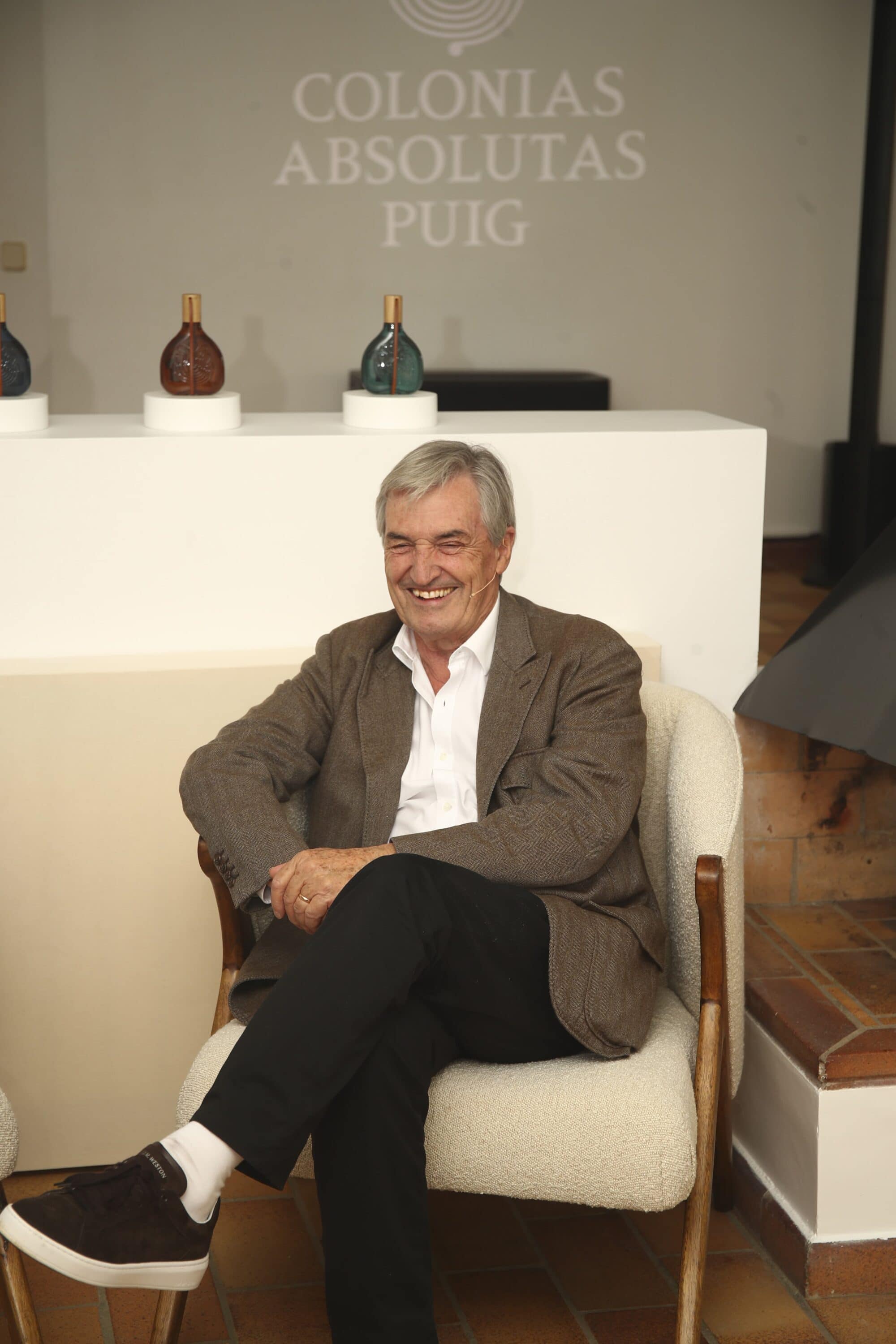
Seated in the fire-side chat room at Casa Semienterrada, Jean-Claude Ellena spoke with the warmth of someone who has retired on his own terms—casual in demeanor, with the boyish charm of someone who still loves his craft. One of the most respected perfumers of his generation, the Grasse-born master is known for his minimalist compositions and philosophical approach to fragrance. As the former in-house perfumer for Hermès, he shaped iconic scents like Un Jardin sur le Nil and Terre d’Hermès, favoring transparency, restraint, and what he calls “perfume that speaks in a low voice.” His work is never about excess, but about essence—a sensibility that finds its fullest expression in this new chapter with Puig.
As the master perfumer spoke to the collection, each of the four scents in Colonias Absolutas emerged as a distinct facet of that contemporary pride.
Agua Brava is a revisitation of Puig’s 1968 classic, now rendered woodier, more sensual. “For me, Agua Brava was a monument,” said Jean-Claude Ellena. “Revisiting it has been a gift to my youth.”
Agua Lavanda Iris marries the familiarity of lavender with the nobility of iris. Ellena called iris “aristocratic,” a word that may raise eyebrows in marketing copy, but lands with grace when he says it aloud. The result is a soft but complex fragrance that wears like linen: breathable, elevated, and timeless.
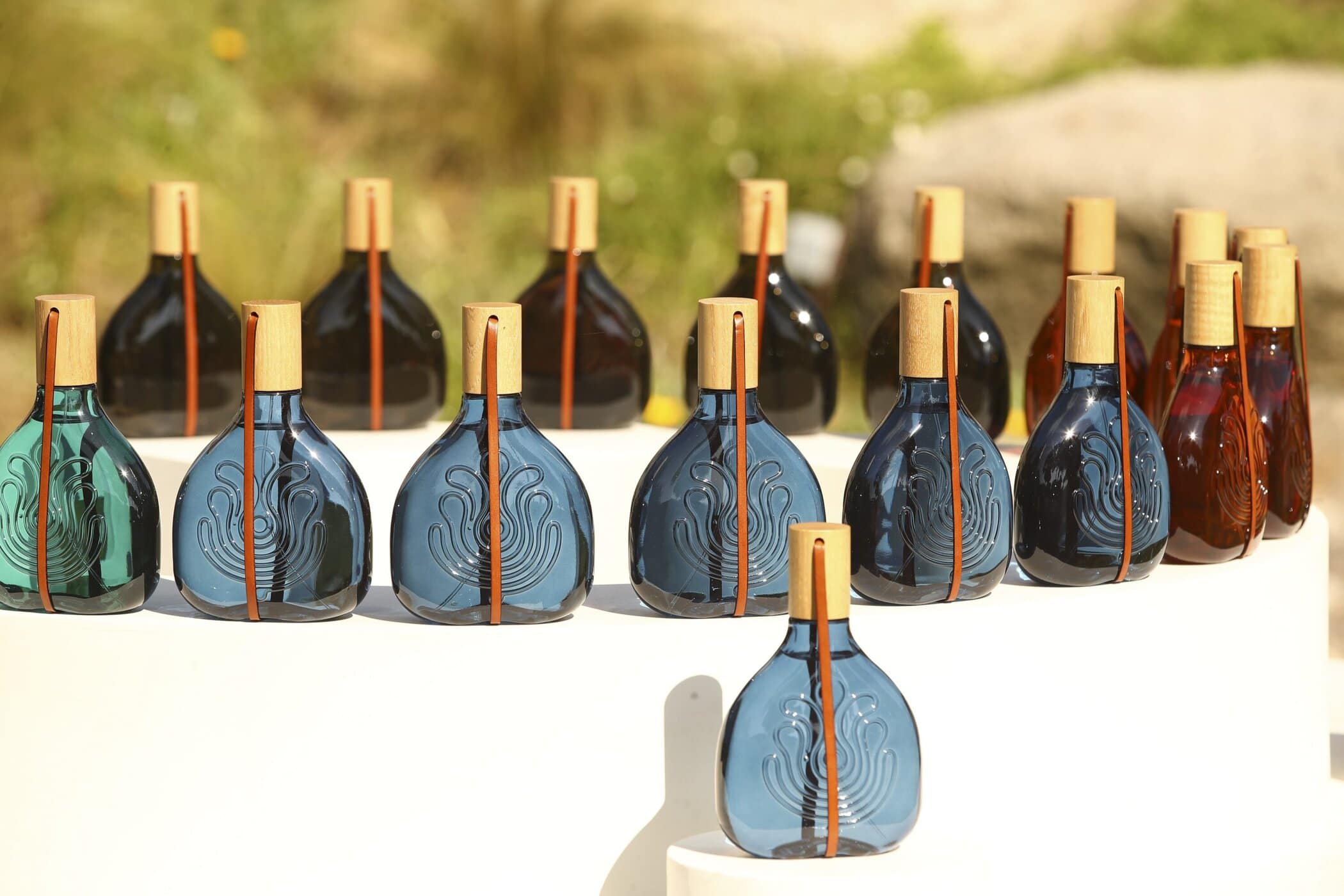
Agua Noble emerged from an exchange of impressions between Puig and Ellena. Rooted in Andalusian leather and laced with bergamot, orange leaf, and white musk, it is perhaps the most narrative of the four—a dialogue turned into scent.
Then there is Agua Mediterránea, the only entirely new fragrance in the line, and the one that best distills Ellena’s quiet genius.
“I had to find a scent that symbolizes the Mediterranean, and this is it, without a doubt: the leaf of the fig tree,” he said. “We use a high dose of fig leaf absolute, the first time it’s been used like this. It’s green, fresh, and intimate—like shade under a tree.”
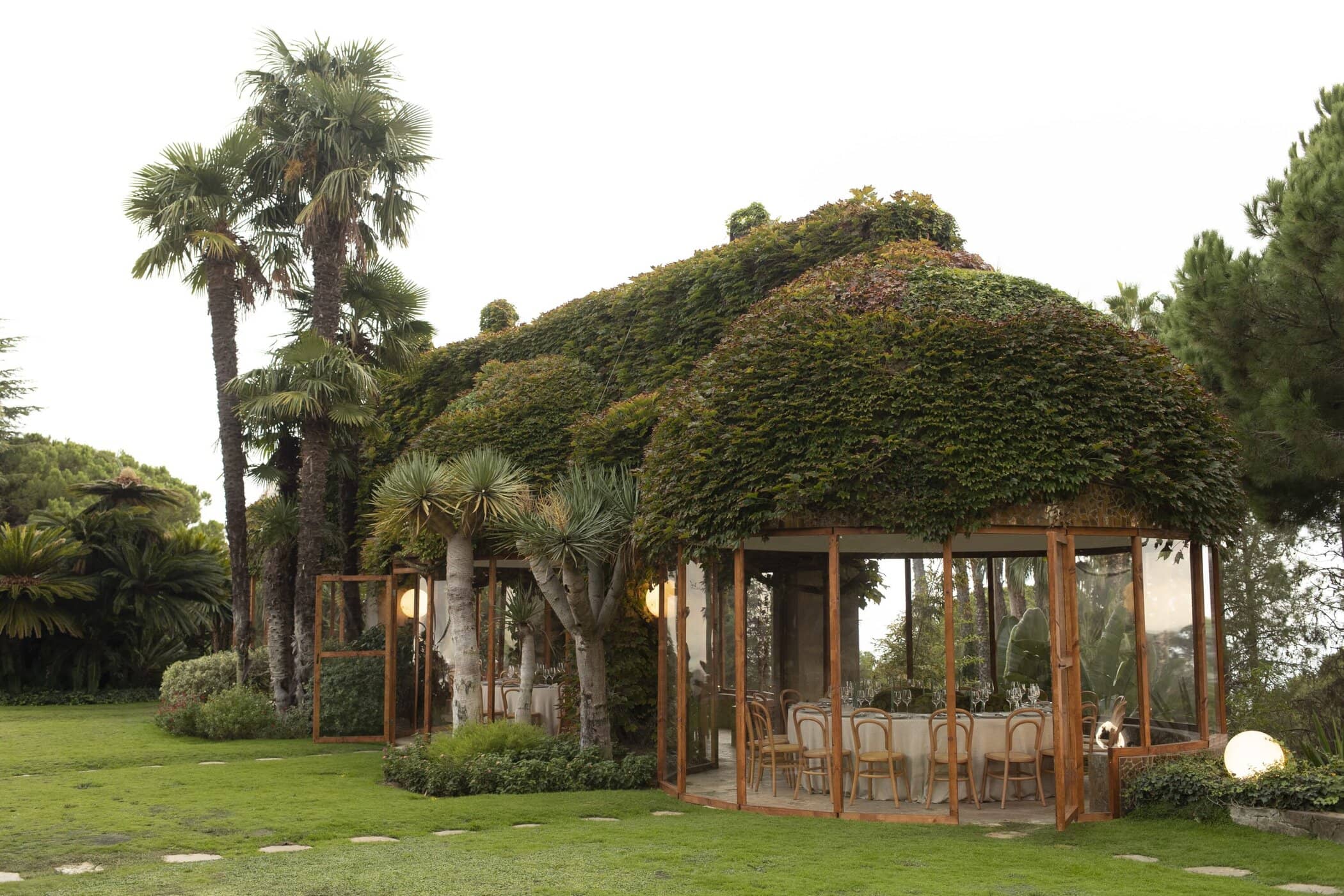
The fragrance also includes wild mint, mastic, cedar, and citrus. It’s herbaceous, elegant, and free of artifice. “Cologne has no gender, no status,” Ellena reminded us. “You wear it for yourself. Maybe others smell it. Maybe not.”
A Quiet Conversation Between Generations
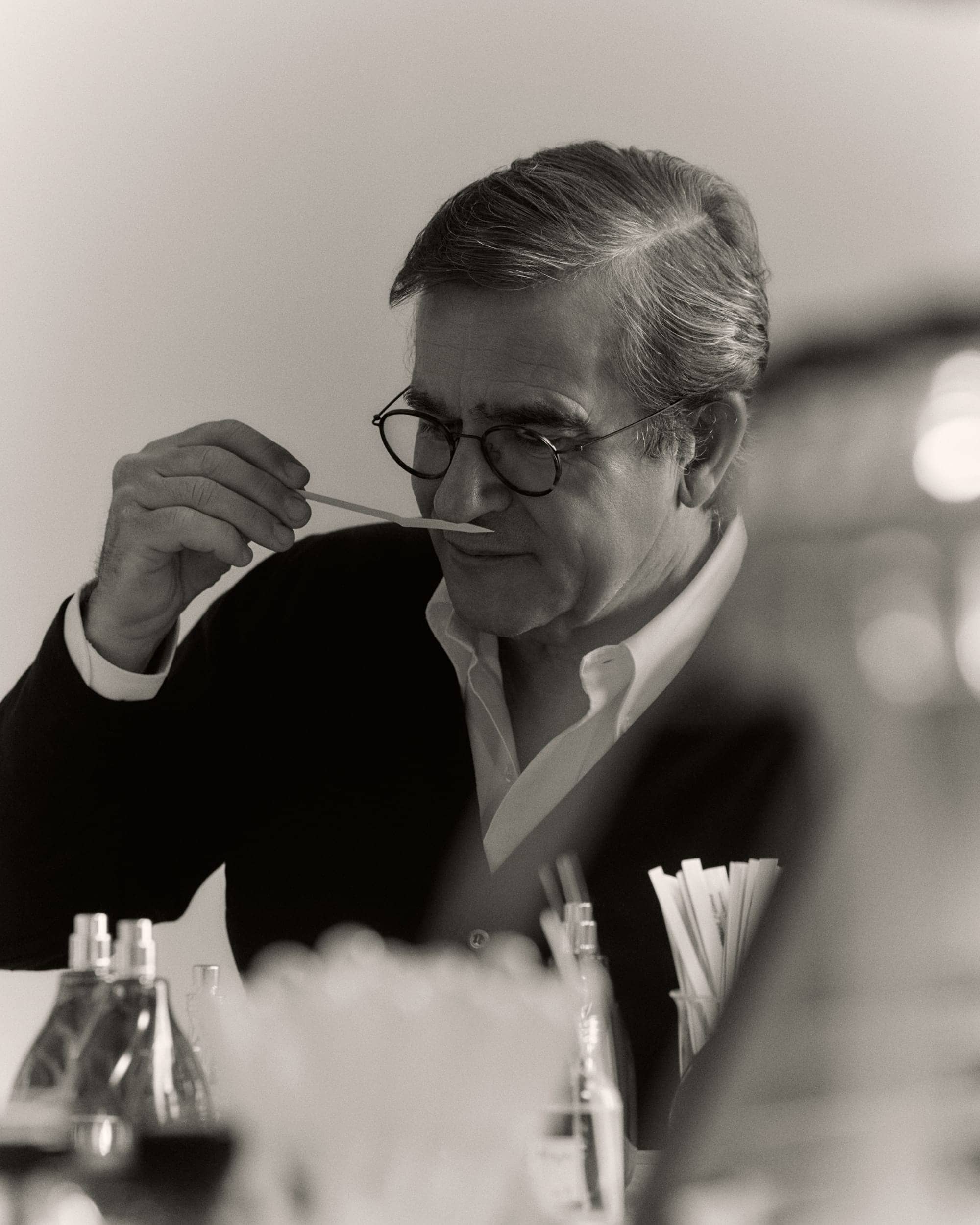
The working relationship between Ellena and Puig unfolded slowly, then all at once. The perfumer had collaborated with Puig previously on L’Artisan Parfumeur. When the idea for Colonias Absolutas emerged, Puig reached out personally.
I said to him, you know, I’m expensive,” Ellena laughed. “He said, ‘Okay.’ So we began.”
Their collaboration was more than transactional. From the outset, Ellena made one condition clear: no marketing teams would be involved in the process. The scents, he believed, had to speak for themselves, free from the noise of positioning and polish.
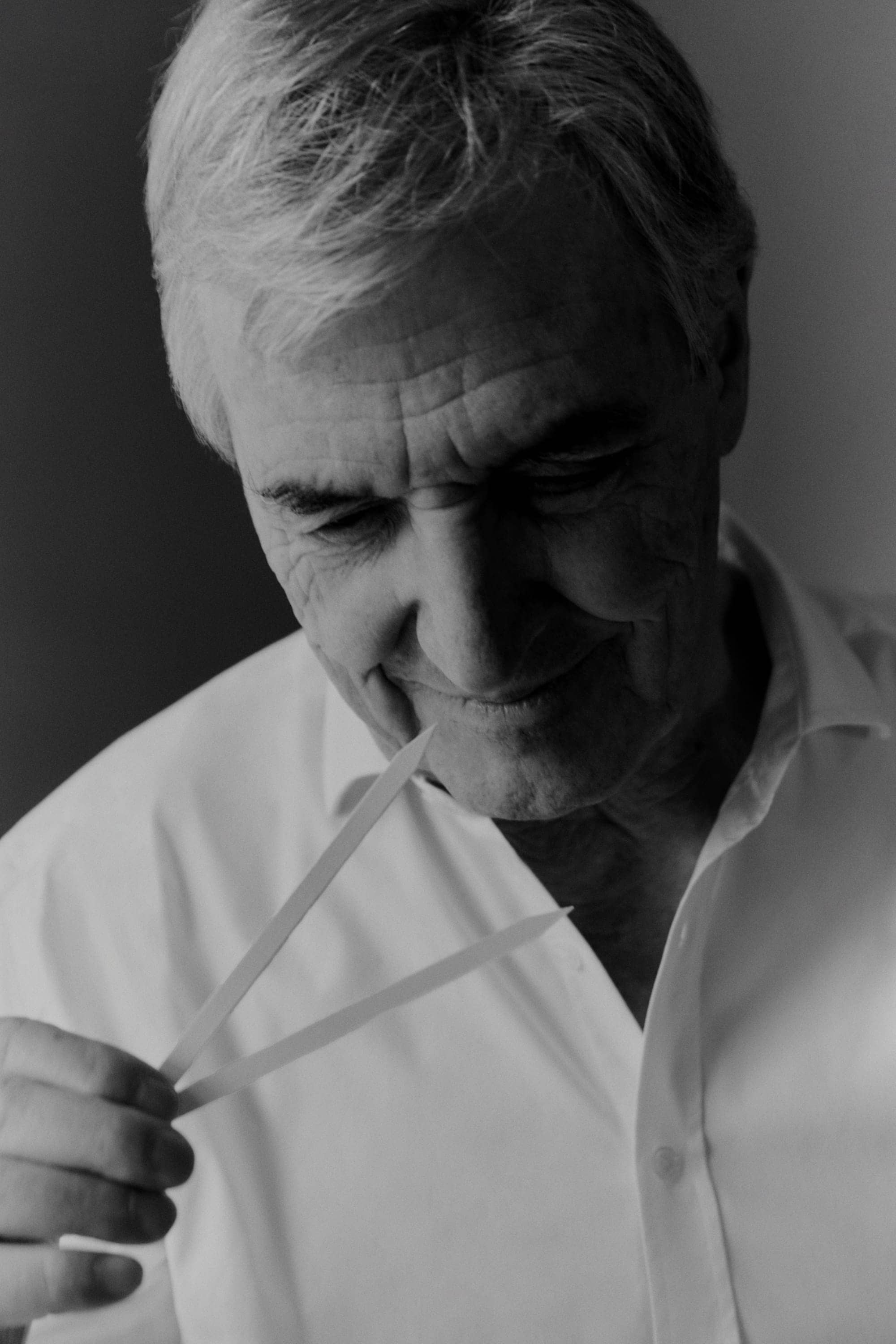
“It was like a family conversation,” said Ellena. “They love perfume. They love odors. And when you love the smell, you speak the same language.”
As he described the four fragrances, his tone remained playful, unscripted, wise. He explained how Agua Noble took the longest to finalize because of its dual nature. How Agua Lavanda Iris delighted him with its clean finish. How he loves them all equally, just on different days.
“Today I wear one. Tomorrow another. Each one tells a story. Each one has something to say.”
The Soul of Puig, at Last
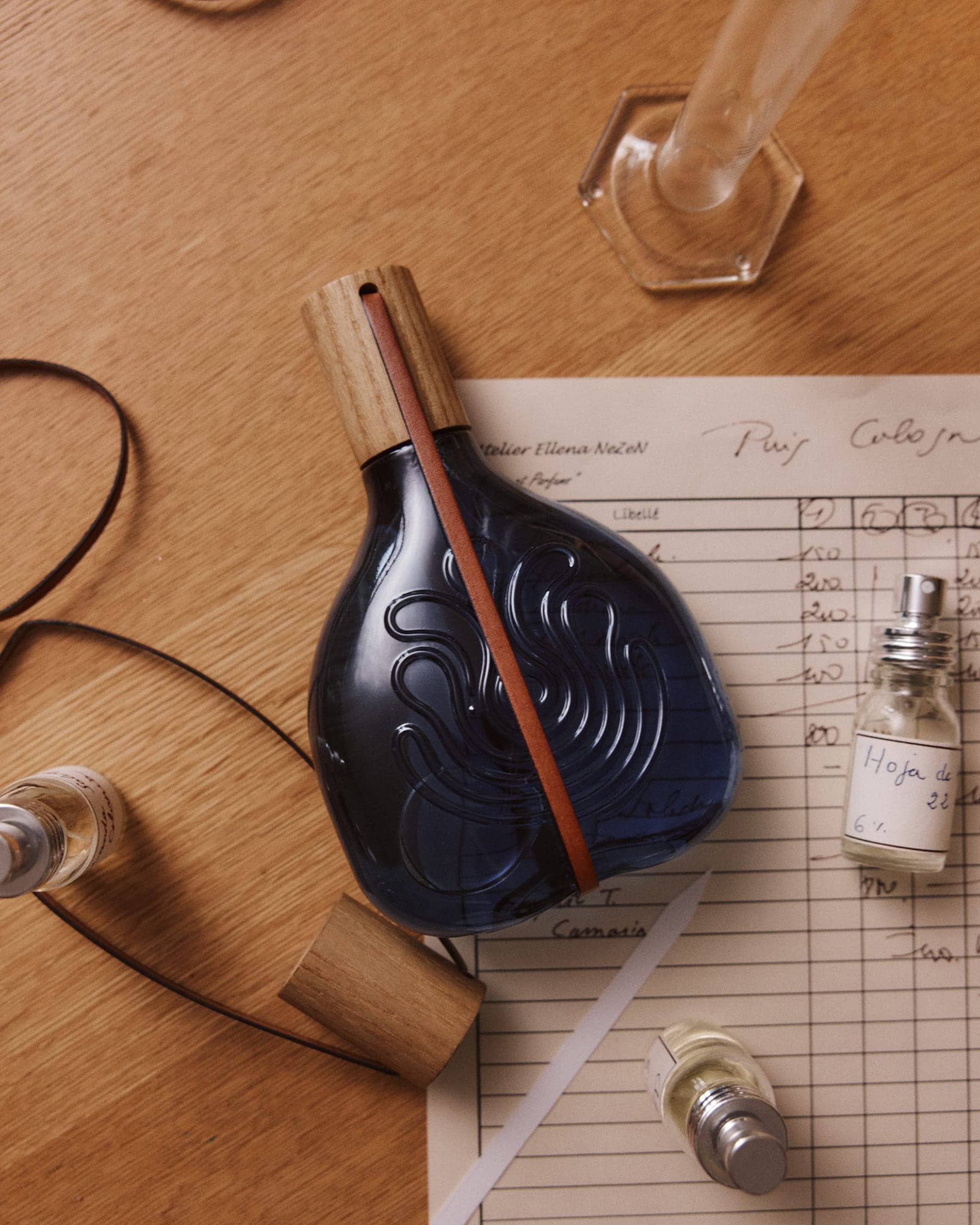
What does it mean for a brand to find its voice again? For Puig, it means owning not just a portfolio, but a perspective. It means placing its name beside its history. And it means creating with a sense of responsibility not to trend, but to truth.
Luxury today must be full of content,” said Puig. “It can be technological. It can be artisanal. But it must offer something real.”
As the last bottles were passed around, a breeze moved through the garden. One could smell the fig, the mint, the echo of lavender in the air. Not loud, not fleeting. Just there.
Slow. Beautiful. Forever.
Just like the house that made it.
